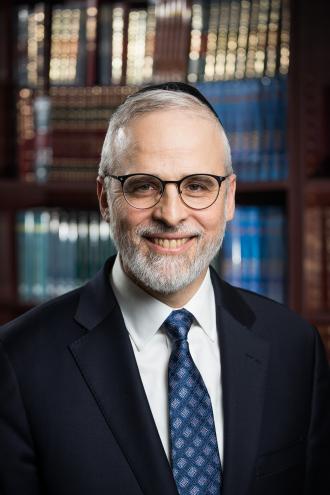Tomorrow evening Jews across the world geography and across the world history will be sitting down to their Seder table. As a member of this exclusive people I too will participate in this glorious dinner. Allow me to share my feelings as I prepare for this event.
I know that this Seder is the event from which our people get their strength to endure throughout the ages, throughout their hardships and throughout their persecutions. It is the night on which HaShem brought us to life and it remains the single most miraculous night of the year. The turning point in the Purim story occurred on the night of the Seder along with other many other turning points in Jewish history.
What can I anticipate? What will I gain from this Seder?
The answer is simple. I can anticipate a strengthening of my personal emunah and bitachon in HaShem. Emunah is trust based on knowledge and bitachon is reliance upon that trust. To illustrate this difference let us study the following situation.
At the turn of 20th century there was a large migration of Jews from Eastern Europe to America. Very many of these Jews were observant in Europe. Many of them were Chasidim who in Europe went with beards and peyos (side locks). However, upon their arrival in America they began working on Shabbos. They continued to attend shul even on Shabbos. They would daven early Shabbos morning and then go home to make kiddush and went off to work. Nobody can judge them for the situation was dire and there was a sincere fear of not having a job. There were, however, a few immigrants whose commitment to HaShem and to His Torah was unshakable. They refused to give up Shabbos and in fact they lost their job on a weekly basis. Somehow they survived and persevered and built families where all their descendants are observant.
The difference between these two groups of observant Jews lies in the difference between emunah and bitachon. Both groups believed in HaShem and knew that HaShem created the world, manages the world, manipulates history and controls nature. Both groups had emunah in HaShem and His sovereignty. However, the first group lacked in their bitachon. They were not able to harness that knowledge and rely upon it. When they considered living in America without a job they were frightened. The second group was able to harness their knowledge and relied upon their knowledge and knew that they can count on HaShem to help them. Their knowledge was so clear to them that any frightening prospect of not having a job was quickly relieved by the knowledge that HaShem brought them to this country, He gave them another day of life and He told them not to work on Shabbos. Following what they knew, they trusted Him and moved on.
Bitachon is taking one’s knowledge and living their life based upon it.
HaShem created the opportunity of the Pesach holiday for the purpose of giving us a renewal of our trust and reliance upon Him. He understood that to continue through the challenges that history would confront us with we would need a constant renewal of awareness. Without an awareness of HaShem we would so quickly give up. This is the purpose of Pesach and specifically the intent of the Seder.
The Seder is replete with mitzvos that involve symbolism. The function of these mitzvos is to take the lessons of the Seder and solidify them so that the lessons go from abstract philosophical thoughts to practical take-home lessons. The wonder of the Seder is that these symbolic mitzvos accomplish their intended goal even if the participant is not aware of the lesson. Of course, if one understands the lesson and appreciates it, the impact of that mitzvah will be so much more effective, however, it is not required.
Let us take one such mitzvah. During the course of the Seder we drink four cups of wine and eat three servings of matzah. There is a mitzvah to eat the matzah and drink the wine in a reclining manner. The lesson which becomes concrete with that mitzvah is the lesson that we can rely upon HaShem without worrying. The worrying person does not recline. He is too scared to place his weight upon anything. As we travel through the Hagadah (the Seder manual) we learn about the incredible care and attention HaShem gave to the our people so that when we recline during those moments we create an indelible mark on our experience that we too can rely upon Him. HaShem’s care was not limited to that period of ancient history but it is relevant today as well. It was not just with the Jews of Egypt but with me as well!
Have a beautiful Pesach, a wonderful Shabbos and a successful Seder.
Tomorrow evening Jews across the world geography and across the world history will be sitting down to their Seder table. As a member of this exclusive people I too will participate in this glorious dinner. Allow me to share my feelings as I prepare for this event.
I know that this Seder is the event from which our people get their strength to endure throughout the ages, throughout their hardships and throughout their persecutions. It is the night on which HaShem brought us to life and it remains the single most miraculous night of the year. The turning point in the Purim story occurred on the night of the Seder along with other many other turning points in Jewish history.
What can I anticipate? What will I gain from this Seder?
The answer is simple. I can anticipate a strengthening of my personal emunah and bitachon in HaShem. Emunah is trust based on knowledge and bitachon is reliance upon that trust. To illustrate this difference let us study the following situation.
At the turn of 20th century there was a large migration of Jews from Eastern Europe to America. Very many of these Jews were observant in Europe. Many of them were Chasidim who in Europe went with beards and peyos (side locks). However, upon their arrival in America they began working on Shabbos. They continued to attend shul even on Shabbos. They would daven early Shabbos morning and then go home to make kiddush and went off to work. Nobody can judge them for the situation was dire and there was a sincere fear of not having a job. There were, however, a few immigrants whose commitment to HaShem and to His Torah was unshakable. They refused to give up Shabbos and in fact they lost their job on a weekly basis. Somehow they survived and persevered and built families where all their descendants are observant.
The difference between these two groups of observant Jews lies in the difference between emunah and bitachon. Both groups believed in HaShem and knew that HaShem created the world, manages the world, manipulates history and controls nature. Both groups had emunah in HaShem and His sovereignty. However, the first group lacked in their bitachon. They were not able to harness that knowledge and rely upon it. When they considered living in America without a job they were frightened. The second group was able to harness their knowledge and relied upon their knowledge and knew that they can count on HaShem to help them. Their knowledge was so clear to them that any frightening prospect of not having a job was quickly relieved by the knowledge that HaShem brought them to this country, He gave them another day of life and He told them not to work on Shabbos. Following what they knew, they trusted Him and moved on.
Bitachon is taking one’s knowledge and living their life based upon it.
HaShem created the opportunity of the Pesach holiday for the purpose of giving us a renewal of our trust and reliance upon Him. He understood that to continue through the challenges that history would confront us with we would need a constant renewal of awareness. Without an awareness of HaShem we would so quickly give up. This is the purpose of Pesach and specifically the intent of the Seder.
The Seder is replete with mitzvos that involve symbolism. The function of these mitzvos is to take the lessons of the Seder and solidify them so that the lessons go from abstract philosophical thoughts to practical take-home lessons. The wonder of the Seder is that these symbolic mitzvos accomplish their intended goal even if the participant is not aware of the lesson. Of course, if one understands the lesson and appreciates it, the impact of that mitzvah will be so much more effective, however, it is not required.
Let us take one such mitzvah. During the course of the Seder we drink four cups of wine and eat three servings of matzah. There is a mitzvah to eat the matzah and drink the wine in a reclining manner. The lesson which becomes concrete with that mitzvah is the lesson that we can rely upon HaShem without worrying. The worrying person does not recline. He is too scared to place his weight upon anything. As we travel through the Hagadah (the Seder manual) we learn about the incredible care and attention HaShem gave to the our people so that when we recline during those moments we create an indelible mark on our experience that we too can rely upon Him. HaShem’s care was not limited to that period of ancient history but it is relevant today as well. It was not just with the Jews of Egypt but with me as well!
Have a beautiful Pesach, a wonderful Shabbos and a successful Seder.















